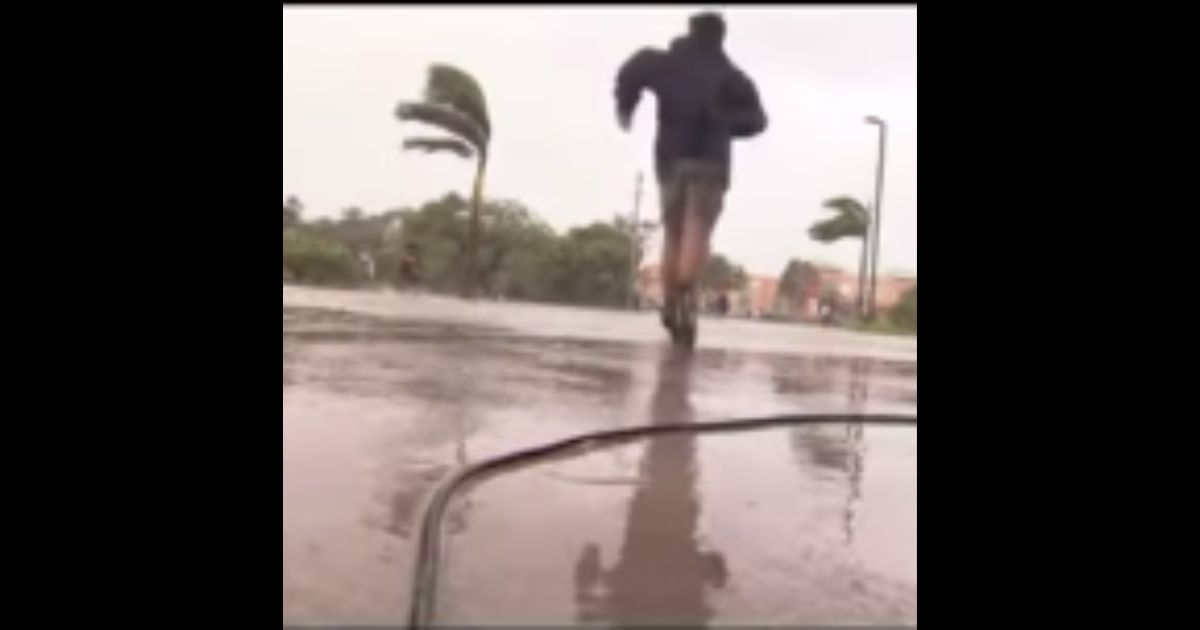In the midst of covering Hurricane Ian, a cameraman dropped his camera in the middle of a live report to help people get through the flood waters.
Australia’s 7News cameraman Glen Ellis was filming the conditions in Florida when he saw a family struggling to carry their belongings through the wind and water.
7News posted a video on Facebook that showed Ellis running to help the family and then wading back out into the muddy water to assist others.
As it was a live broadcast, 7News host David Koch could be heard in the video asking if everything was alright.
“We’re just helping some people through the water here. That’s our camera operator, Glen Ellis, out there — I think you can see — trying to help people who are wading away from their homes,” 7News U.S. correspondent Tim Lester said.
Lester went on to explain that many of the people they had spoken with had lost their homes in the hurricane.
“We’ve spoken to a couple of them and they tell us that already their houses have been lost in the water,” Lester said. “They’ve flooded right through and they’ve had to abandon them.”
Ian made landfall on Florida’s west coast on Wednesday afternoon as a dangerous Category 4 hurricane. It was downgraded to a tropical storm on Thursday morning, according to ABC News.
Florida Gov. Ron DeSantis called the damage caused by the hurricane “historic,” ABC reported.
“The impacts of this storm are historic and the damage that was done has been historic and this is just off initial assessments. There’s going to be a lot more assessing that goes on in the days ahead,” DeSantis said at a Thursday news conference.
“But I think we’ve never seen a flood event like this,” DeSantis added. “We’ve never seen storm surge of this magnitude, and it hit an area where there’s a lot of people in a lot of those low-lying areas and it’s going to end up doing extensive damage to a lot of people’s homes.”
By early Thursday morning, more than 2 million people were without power. DeSantis said that Charlotte and Lee counties on the southwest coast of the state were “basically off the grid at this point.”
This article appeared originally on The Western Journal.

























 Continue with Google
Continue with Google